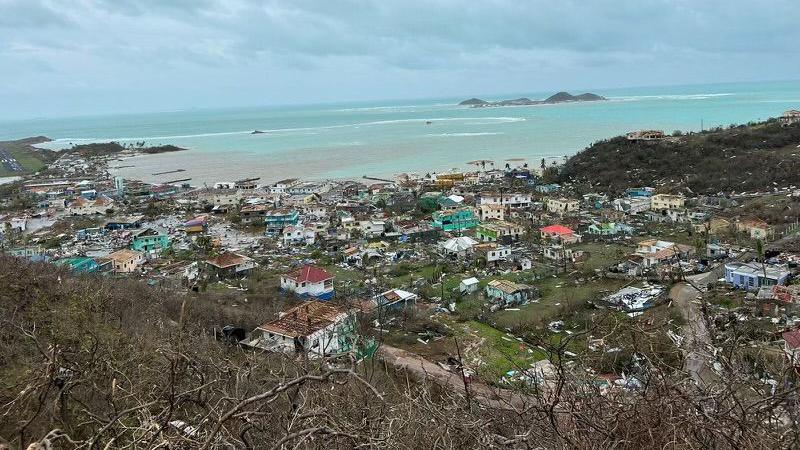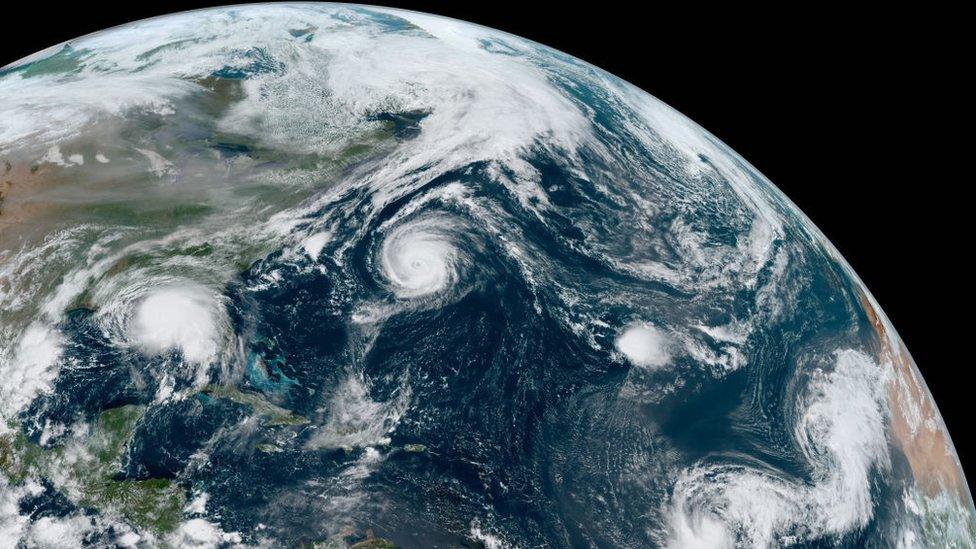Hurricane Beryl leaves Jamaican homes without power
Cayman Islands and Mexico braces for Hurricane Beryl
- Published
Hundreds of thousands of homes in Jamaica remain without power in the wake of Hurricane Beryl.
The then category four storm - one of the most powerful to ever hit the country - swept along the island's southern coast earlier this week, bringing more than 12 hours of heavy rain.
Officials and residents are assessing the damage after an island-wide curfew was lifted early on Thursday.
On Friday, Beryl made landfall in Mexico after weakening to a category two storm.
Strong winds and dangerous storm surges and waves hit Mexico's Yucatan Peninsula early on Friday.
The National Hurricane Center (NHC) in the US has forecasted Beryl to bring 10cm (4in) to 15cm (6in) of rain to Mexico's coast.
In an update on Friday evening, the NHC issued a hurricane watch for southern Texas, warning that Beryl may gain strength over the ocean before making landfall in the US.
It has already left a trail of devastation across the Caribbean, killing at least 10 people.
St Vincent and the Grenadines, Grenada and Venezuela reported three deaths each, while one person died in Jamaica.
The storm destroyed almost every home on two small islands in St Vincent and the Grenadines, Mayreau and Union.
Predicted path of Hurricane Beryl
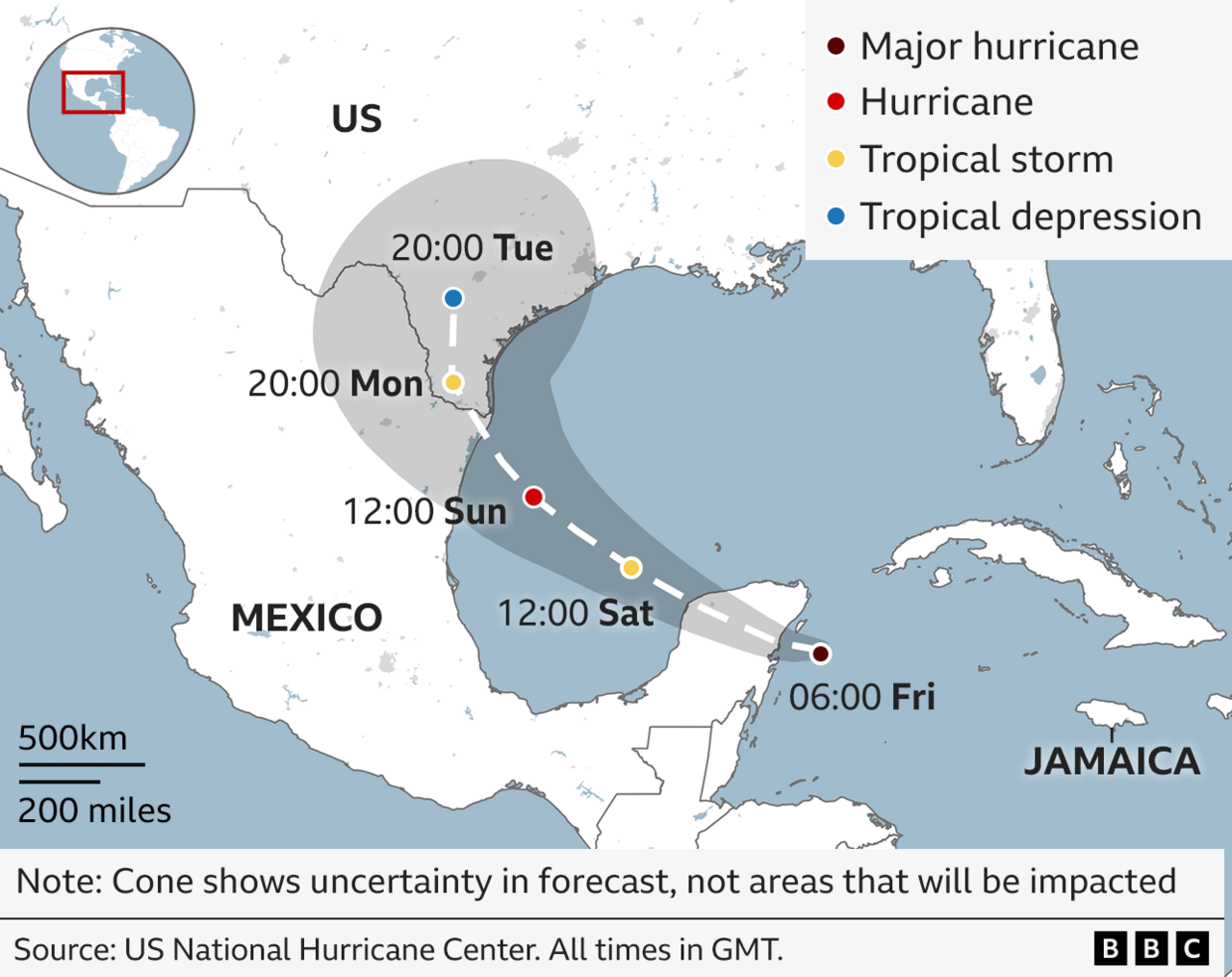
Here in the Jamaican capital, Kingston, while the winds were extremely strong, they were not the hurricane gusts that were expected. But the hours of heavy rain are a real concern, especially on farmland where flooding has been reported.
One resident of a rural farming community told the Reuters news agency: "It's terrible. Everything's gone. I'm in my house and I'm scared."
"It's a disaster," said Amoy Wellington, who lives in the southern parish of St Elizabeth.
On Wednesday night I was able to go outside briefly to move my car away from overhanging trees.
A full-length mirror was lying next to the car - it had probably blown off someone's balcony, a reminder that unexpected objects suddenly become missiles in winds that strong.
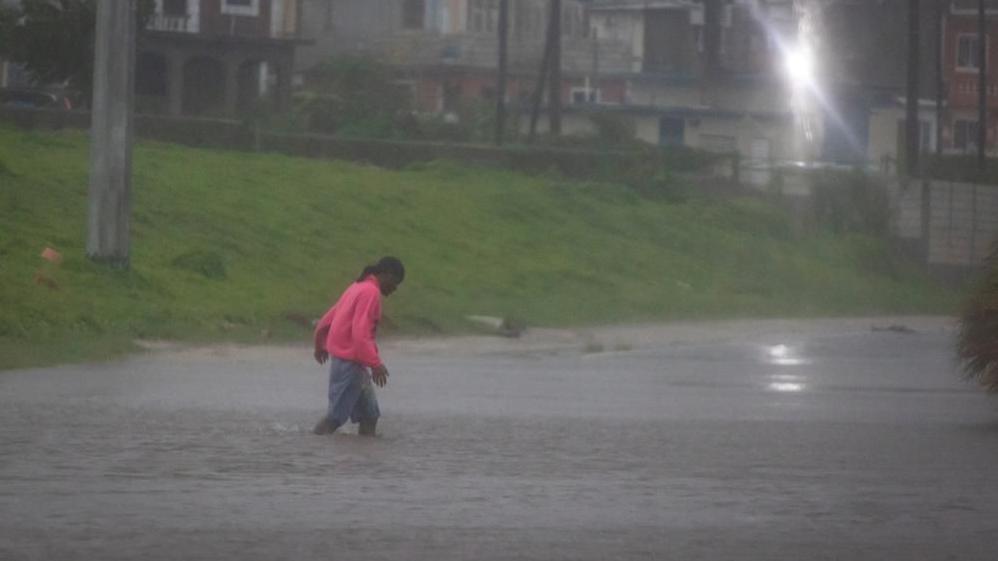
Rain lashed Jamaica for 12 hours
Jamaican energy provider JPS said that 65% - or about 400,000 of its customers - were without power on Thursday morning.
The hurricane had delivered “a most devastating blow” to parts of the island, said the MP for St Elizabeth South Western.
Posting on X, Floyd Green said in his constituency “significant numbers of roofs [have been] lost, houses destroyed, trees uprooted, light poles downed, almost all roads are impassable”.
King Charles III, who is also monarch in several Caribbean nations, said on Thursday he was "profoundly saddened to learn of the dreadful destruction" left by Hurricane Beryl.
The UN has unlocked $4m (£3.1m) from its emergency response fund to help the recovery in Jamaica, Grenada and Saint Vincent and the Grenadines.
Prime Minister Andrew Holness thanked "first responders, essential services, security forces and good Samaritans who have assisted others in this time of crisis" on his X account.
Beryl became the the earliest category five Atlantic hurricane in records going back around 100 years - thought to be as a result of warmer sea surface temperatures.
The storm shocked meteorologists at how fast it intensified - taking just 42 hours to go from a tropical depression to a major hurricane.
Additional reporting by Alex Smith and Tiffany Wertheimer
Watch: Flooding and destruction after Hurricane Beryl hits Jamaica
Related topics
- Published4 July 2024
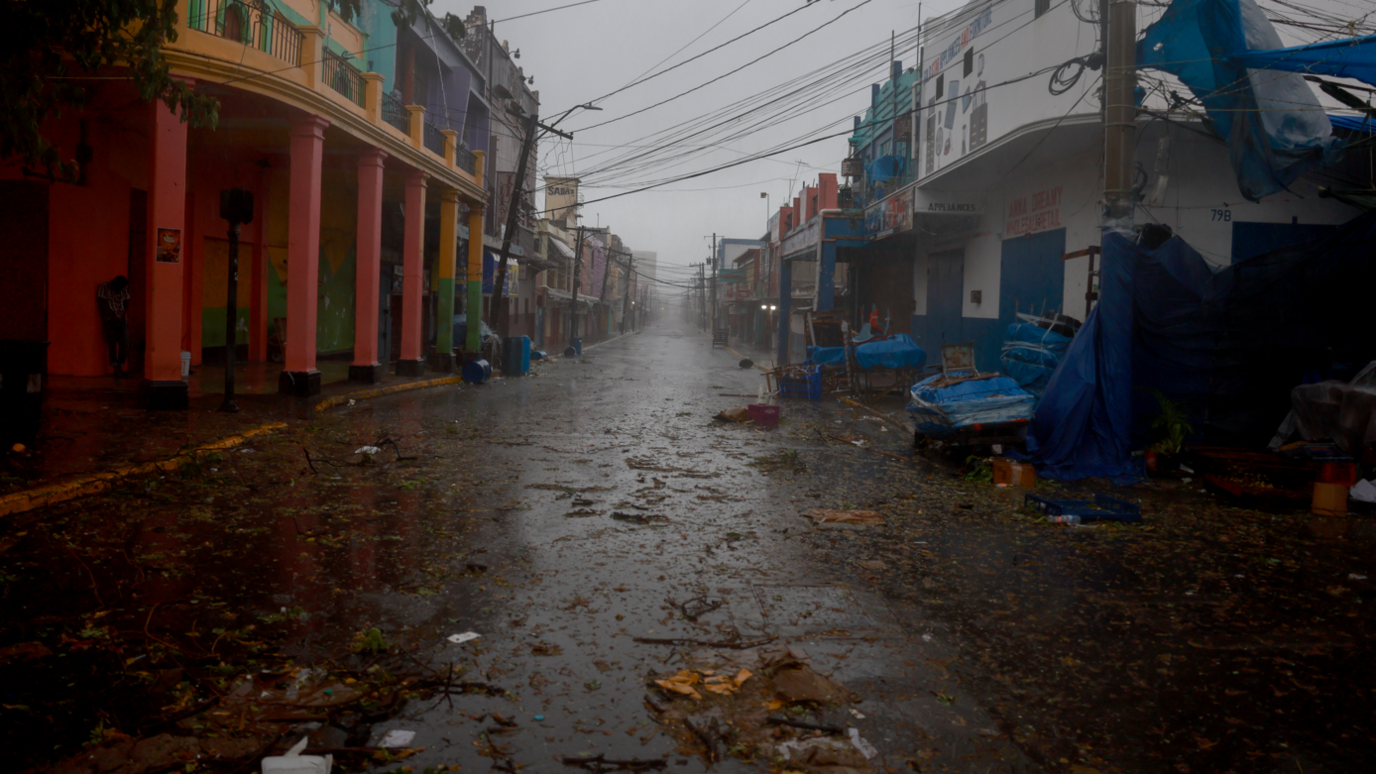
- Published5 July 2024
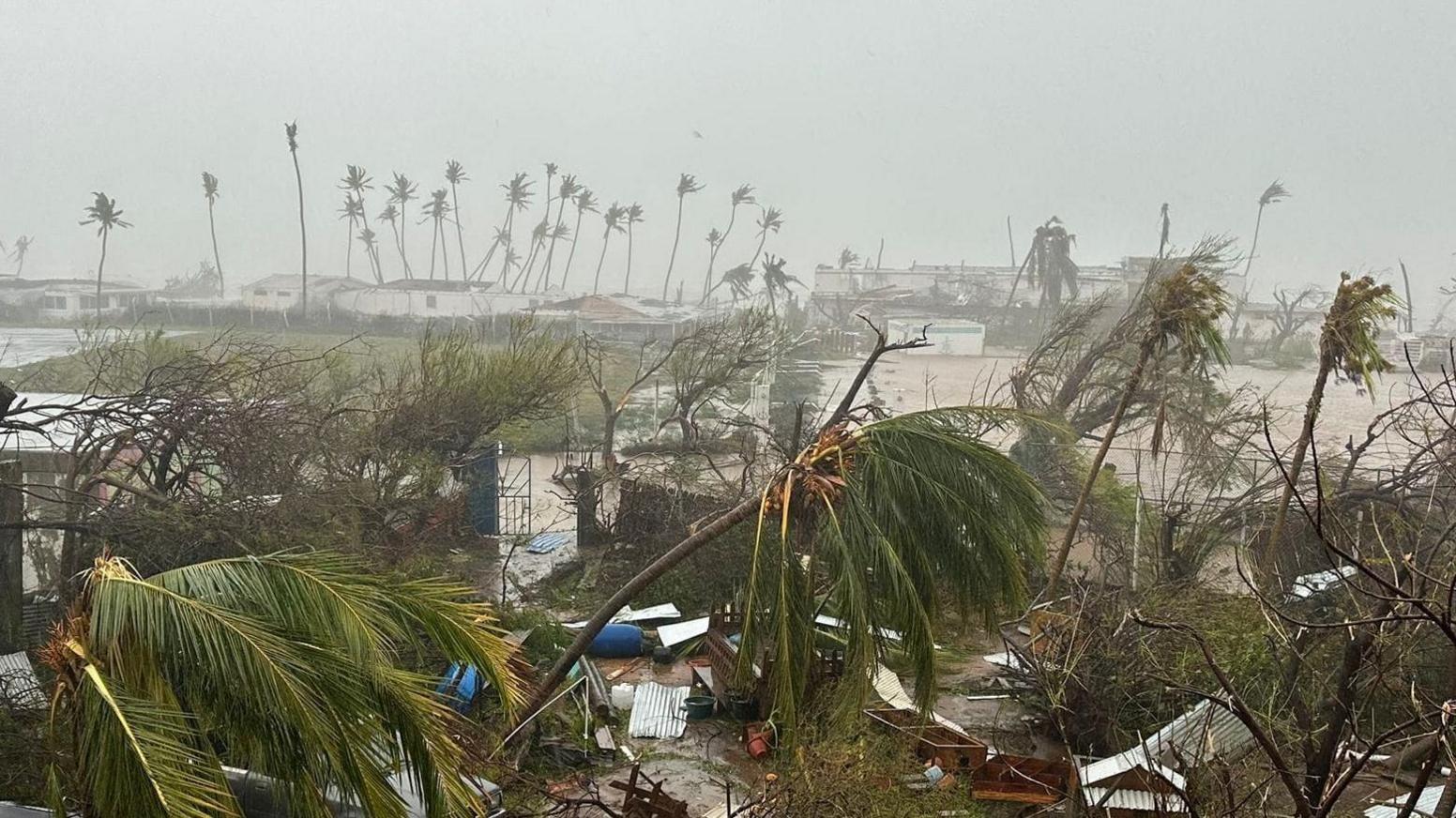
- Published3 July 2024
